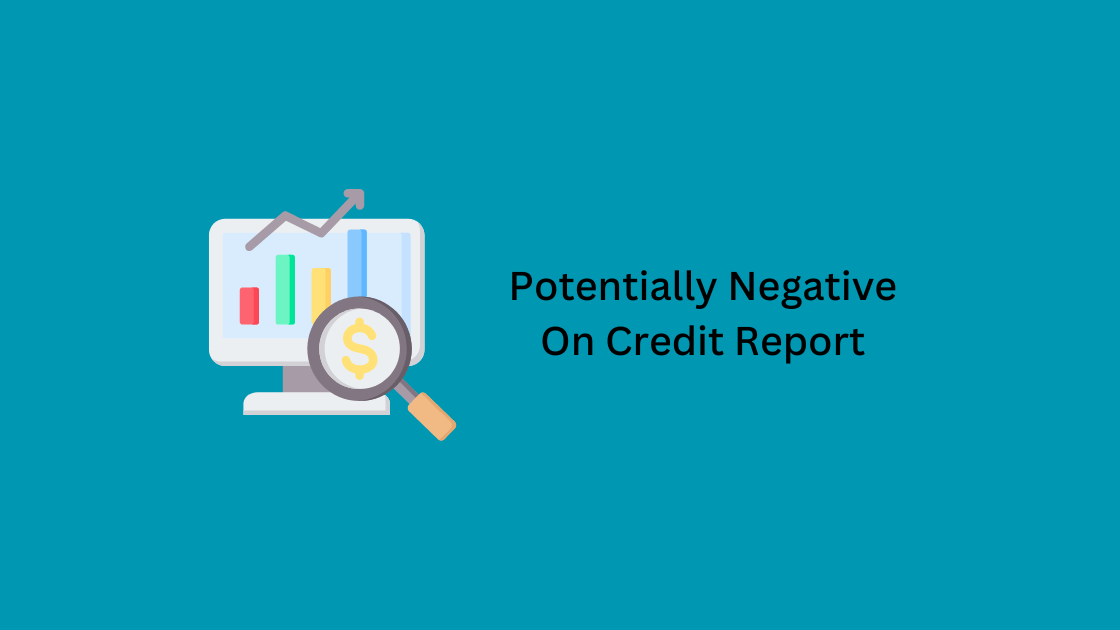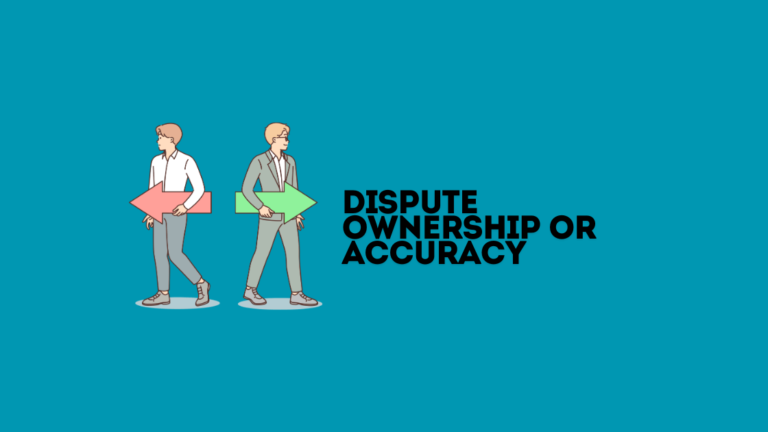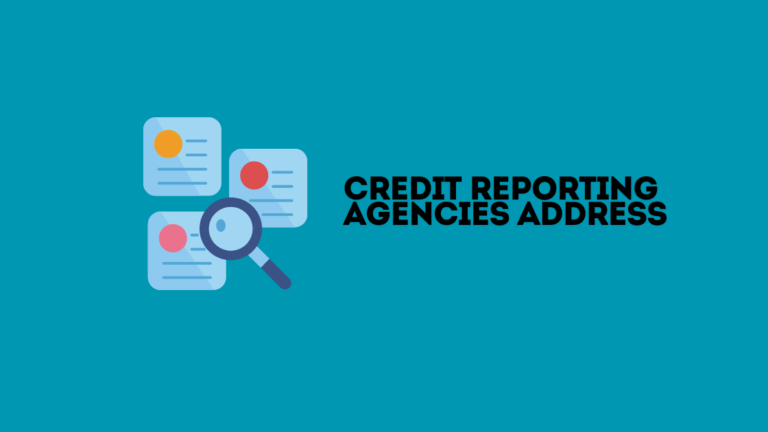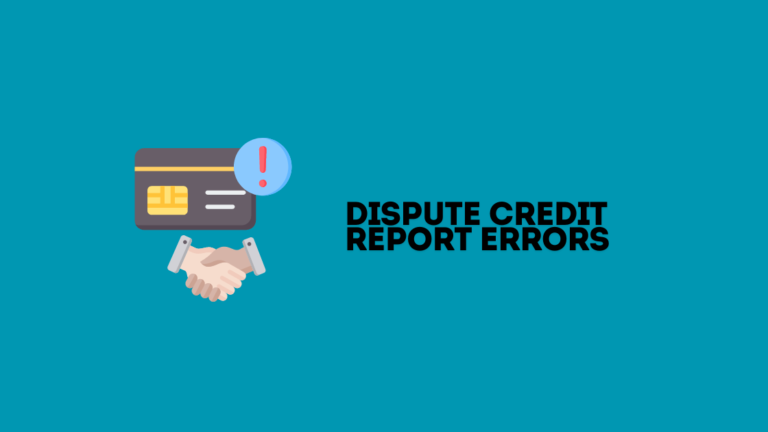Potentially Negative on Credit Report: Top Factors to Avoid
Late payments, collections, and bankruptcies can negatively impact your credit report. These factors lower your credit score significantly.
Credit reports are crucial in determining your financial health. They provide a detailed history of your credit activities, including loans, credit cards, and payment habits.
Negative entries like late payments, collections, and bankruptcies can severely affect your credit score. These negative marks make it harder to obtain new credit, loans, or even favorable interest rates.
It’s essential to monitor your credit report regularly. By doing so, you can identify and address potentially damaging information swiftly. Improving your credit score involves paying bills on time, reducing debt, and avoiding new negative entries. Managing your credit responsibly can lead to better financial opportunities.

Credit: www.reddit.com
Late Payments
Late payments can hurt your credit report significantly. They tell lenders that you might not be reliable with your payments. This can lead to higher interest rates or even loan denials. Let’s explore how late payments impact your credit score and ways to avoid them.
Impact On Credit Score
Late payments can lower your credit score. Even one missed payment can drop your score. Payment history makes up 35% of your credit score. Late payments stay on your report for seven years. A table can help you understand the impact better:
| Days Late | Impact on Credit Score |
|---|---|
| 30 Days | Small impact, but still noticeable |
| 60 Days | Moderate impact, more noticeable |
| 90+ Days | Severe impact, very noticeable |
How To Avoid Late Payments
There are several ways to avoid late payments. Here are some tips:
- Set reminders: Use your phone or calendar to set payment reminders.
- Automatic payments: Set up automatic payments through your bank.
- Budgeting: Create a budget to ensure you have enough money to pay bills.
- Contact lenders: If you can’t pay on time, contact your lender to discuss options.
These tips can help you stay on track and avoid late payments. Late payments can harm your credit score, but you can take steps to prevent them.
High Credit Utilization
High credit utilization can significantly impact your credit score. Lenders view high utilization as a risk. It indicates you rely too much on credit. Keeping your utilization low is key to maintaining a healthy credit score.
Optimal Utilization Ratio
Experts suggest keeping your credit utilization below 30%. This means if your credit limit is $10,000, you should aim to use no more than $3,000. Lower utilization ratios indicate better credit management. It shows lenders you can manage your credit responsibly.
Strategies To Lower Utilization
Here are some effective strategies to lower your credit utilization:
- Pay down your balances: Reduce your outstanding balances as much as possible.
- Request a credit limit increase: A higher limit can improve your utilization ratio.
- Distribute your charges: Spread your expenses across multiple cards to avoid high utilization on a single card.
- Set up alerts: Use alerts to monitor your spending and stay within limits.
- Make multiple payments: Pay your credit card bill multiple times a month to keep your balance low.
Using these strategies can help you maintain a healthy credit score. Remember, responsible credit management is essential for financial well-being.
Loan Defaults
Loan defaults can seriously damage your credit report. Defaulting on a loan means you have missed several payments. This shows lenders you are a risky borrower. Learn more about the consequences and how to prevent defaults.
Consequences Of Default
Loan defaults can lead to many negative outcomes:
- Credit Score Drop: A default can drop your credit score significantly.
- Higher Interest Rates: Future loans may come with higher interest rates.
- Collection Agencies: Your debt might be handed over to collection agencies.
- Legal Actions: Lenders may sue you to recover the owed amount.
- Long-Term Impact: Defaults stay on your credit report for up to seven years.
Steps To Prevent Default
Preventing loan defaults involves careful planning and financial discipline:
- Create a Budget: Track your income and expenses. Allocate funds for loan payments first.
- Set Payment Reminders: Use apps or calendar alerts to remind you of due dates.
- Communicate with Lenders: Inform lenders if you face financial difficulties. They may offer solutions.
- Consider Loan Refinancing: Lower your monthly payments by refinancing your loan.
- Build an Emergency Fund: Save money to cover unexpected expenses and avoid missing payments.
By understanding these steps, you can avoid loan defaults and maintain a healthy credit report.
Bankruptcy Filings
Bankruptcy filings can severely impact your credit report. They indicate financial distress and can remain on your credit report for up to ten years. Understanding the types and long-term effects of bankruptcy is crucial for financial planning.
Types Of Bankruptcy
There are different types of bankruptcy filings. The most common types include Chapter 7 and Chapter 13.
| Type | Description | Duration on Credit Report |
|---|---|---|
| Chapter 7 | Liquidation bankruptcy. It involves selling assets to pay debts. | 10 years |
| Chapter 13 | Reorganization bankruptcy. It involves creating a repayment plan. | 7 years |
Long-term Effects
Bankruptcy filings have long-term effects on your credit score. Bankruptcy can lower your credit score by over 200 points. This makes obtaining loans difficult.
Loans with good terms become challenging to secure. Interest rates on new loans might be higher. Insurance premiums could also increase due to a poor credit score.
Bankruptcy also affects your ability to rent a home. Landlords might hesitate to rent to someone with a bankruptcy on their credit report. Employment opportunities might be limited in certain fields.
Rebuilding credit after bankruptcy takes time. Consistent, on-time payments and managing finances wisely are key to recovery.
Multiple Credit Inquiries
Multiple credit inquiries can negatively impact your credit report. Each inquiry suggests you are looking for credit. Too many inquiries can lower your credit score. This can make it harder to get loans or credit cards.
Hard Vs. Soft Inquiries
Hard inquiries affect your credit score. Soft inquiries do not. A hard inquiry happens when lenders check your credit for a loan or credit card. A soft inquiry occurs when you check your credit or a lender pre-approves you.
| Type of Inquiry | Impact on Credit Score | Examples |
|---|---|---|
| Hard Inquiry | Can lower your score | Loan application, credit card application |
| Soft Inquiry | No impact | Checking your credit score, pre-approved credit offers |
Limiting Hard Inquiries
Limiting hard inquiries is crucial for maintaining your credit score.
Here are some tips:
- Only apply for credit when necessary.
- Combine applications if shopping for a mortgage or auto loan.
- Check your credit report for unauthorized inquiries.
Use these strategies to keep your credit score healthy.
Too many hard inquiries can hurt your financial future.
Debt Collections
Debt collections occur when unpaid debts are transferred to collection agencies. This can have a significant impact on your credit report. Understanding how this process works can help you manage your finances better.
How Debt Collections Affect Credit
Debt collections can lower your credit score. This happens because unpaid debts signal financial irresponsibility to lenders. The more recent the collection, the greater the impact.
Collections stay on your credit report for seven years. During this period, they can make it harder to get loans or credit cards. Even if you pay off the debt, the collection record remains on your report.
High credit scores drop significantly with collections. On the other hand, if your score is already low, the drop will be less drastic.
Resolving Collection Accounts
Resolving collection accounts can improve your credit score. Here are some steps to take:
- Review Your Credit Report: Check for any errors in the collection accounts. Dispute any incorrect information with the credit bureau.
- Contact the Creditor: Discuss the debt and negotiate a payment plan. Some creditors may agree to remove the collection from your report if you pay in full.
- Get a “Pay for Delete” Agreement: In this agreement, the creditor removes the collection once you pay the debt. Ensure you get this agreement in writing before making a payment.
- Pay the Debt: Paying off the debt shows responsibility. While it won’t remove the collection from your report, it will look better to future lenders.
It is crucial to keep track of your payments. Always get receipts for any payments made to collection agencies.
Following these steps can help you resolve collection accounts effectively. Remember, consistency and diligence are key.
Foreclosures
Foreclosures can be a stressful and challenging experience. They occur when a homeowner is unable to make mortgage payments, leading to the lender repossessing the property. This process not only results in losing your home but can also have a significant impact on your credit report.
Credit Impact Of Foreclosure
A foreclosure can drastically lower your credit score. The impact can last for several years, typically up to seven years. This can make it harder to get loans, credit cards, and even rental agreements.
A foreclosure is marked on your credit report as a serious delinquency. This shows lenders that you have failed to meet your financial obligations. The drop in credit score can be between 85 to 160 points, depending on your credit history.
| Credit Score Before Foreclosure | Potential Score Drop |
|---|---|
| Excellent (750+) | 100-160 points |
| Good (700-749) | 85-105 points |
| Fair (650-699) | 70-90 points |
Alternatives To Foreclosure
There are alternatives to foreclosure that can help protect your credit score:
- Loan Modification: Adjust your loan terms to make payments more manageable.
- Short Sale: Sell your home for less than the owed mortgage amount.
- Repayment Plan: Create a plan to catch up on missed payments over time.
Seeking these alternatives can help you maintain a better credit score. It’s important to communicate with your lender and explore these options.

Credit: www.nbcnews.com
Public Records
Public records can negatively affect your credit report. They include various legal documents that are accessible to the public. These records can be a red flag to potential lenders.
Types Of Public Records
Public records on your credit report typically fall under these categories:
- Bankruptcies: Legal processes where individuals or businesses can’t repay debts.
- Tax Liens: Claims by the government on your property due to unpaid taxes.
- Judgments: Court decisions requiring you to pay a debt.
Removal Of Negative Records
Removing negative public records can improve your credit score. Here are steps to follow:
- Review Your Credit Report: Check for any errors or outdated information.
- Dispute Inaccuracies: Contact credit bureaus to correct mistakes.
- Pay Off Debts: Settle outstanding debts to improve your report.
Here is a table summarizing the impact of different public records:
| Public Record Type | Impact on Credit Score | Duration on Report |
|---|---|---|
| Bankruptcy | Severe | 7-10 years |
| Tax Lien | High | 7 years |
| Judgment | Moderate | 7 years |

Credit: www.nbcnews.com
What Factors Can Negatively Impact My Credit Report and How Can I Avoid Them?
Factors that can negatively impact your credit report include missed payments, high credit card balances, and applying for multiple new accounts. To avoid these, prioritize paying bills on time, keep credit card balances low, and only apply for new credit when necessary. As you consider starting a credit repair business, understanding these factors is crucial for helping clients improve their credit.
Can Credit Repair in Utah Help Remove Negative Factors from My Credit Report?
Negative factors on your credit report can impact your financial future, but the right approach can help improve your score. With credit repair utah made easy, you can dispute inaccuracies, remove errors, and work toward a stronger financial standing. Professional guidance simplifies the process, helping you regain control over your credit.
Frequently Asked Questions
1. What Does Potentially Negative Mean On Credit?
“Potentially negative” on credit means it could harm your credit score. It includes late payments, defaults, or high debt.
2. How Do I Remove Negative Items From My Credit Report?
Dispute errors with credit bureaus online or by mail. Negotiate with creditors for removal. Pay off debts. Use goodwill letters for late payments. Seek professional help if needed.
3. How Long Can Negative Information Stay On A Credit Report?
Negative information can stay on a credit report for up to seven years. Bankruptcy can remain for up to ten years.
4. What Is Included In The Potentially Negative Items Section Of A Credit Report?
The potentially negative items section of a credit report includes late payments, charge-offs, collections, bankruptcies, foreclosures, and liens. These entries indicate financial mismanagement and can impact your credit score. Accurate reporting helps lenders assess your creditworthiness. If you believe there is an error on your credit report, you have the right to dispute it. Disputing credit report reasons can help to correct any inaccuracies and potentially improve your credit score. Additionally, monitoring your credit report regularly can help ensure that any negative items are accurate and up to date.
5. What Affects A Credit Report Negatively?
Late payments, high credit card balances, and loan defaults can negatively impact your credit report.
Conclusion
Being proactive about your credit report is essential. Regularly check for errors and address them promptly. Understanding potential negatives can help maintain a healthy credit score. Accuracy in credit reporting is crucial in ensuring that your credit score truly reflects your financial behavior. By staying on top of your credit report and addressing any inaccuracies, you can prevent potential negative impacts on your credit score. Additionally, being proactive about your credit report can also help protect you from identity theft and fraudulent activity.
Stay informed and take control of your financial future. A well-managed credit report opens doors to better financial opportunities and peace of mind.







